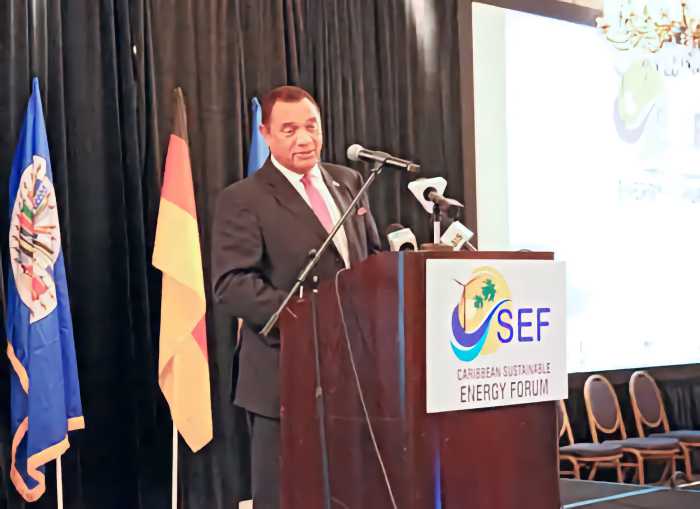Last week on April 29, an abundance of Haitian and Haitianist Ph.Ds mingled in the penthouse of the Student Union at Brooklyn College to informally kick-off the launch of the new CUNY-Haitian Studies Institute. Brooklyn College is its home. Attending scholars traveled from all parts of the U.S. including metro area New Yorkers and from Montreal and Paris to Haiti.
For more than a year, a dedicated group of mostly Haitian CUNY faculty from Queens College, York, Baruch, NYC College of Technology, Kingsborough, BMCC, and Brooklyn College met regularly and worked to develop a proposal for the Haitian Studies Institute. CUNY-HSI will be dedicated to international research, the dissemination of knowledge about Haiti and the Haitian diaspora, and the advancement of the field of Haitian studies.
Dean Richard Greenwald of BC’s School of Humanities and Social Sciences, in which HSI will be situated, says that HSI “needs to be a research institute that can gain national and international exposure — a place that generates knowledge.”
Dean Greenwald added, “Our aim is to attract international scholars, create working papers and sponsor publications — to be more ambitious (than the center at University of Miami).”
While talk of a Haitian Studies Institute has been floating around for a while, Dean Greenwald explained that the Board of Trustees of the University voted on it and that the directive making it a reality comes from CUNY’s Chancellor. Now, it’s official!
This institute will have a professor director, a tenured position, based in the Africana Studies Department. To be announced soon, the provost makes the decision for this academic appointment with recommendations from the Africana Studies Department.
Brooklyn College is in the 45th City Council District, represented by Jumaane Williams, a BC alumnae who is a strong ally of the idea of establishing the institute. Dean Greenwald mentioned, “We’re hopeful that City Council will be (financially) supportive.”
At the evening reception, Haitian-American Assembly Member Rodnesye Bichotte emphasized how it was time for an institute that backed scholarship in Haitian research. “It’s appropriate that this institute is situated in the center of the Caribbean communities in Brooklyn,” she said. Provost and senior vice president at Brooklyn College William Tramontano greeted attendees.
C. Reynold Verret, president of Xavier University in New Orleans gave the keynote speech at the reception. He emigrated with his family from Haiti as a boy in 1963, excelling at Brooklyn Prep and then Columbia University. His academic field is chemistry and biochemistry.
President Verret began his talk on the global affect of the Haitian revolution and how it impacted the Americas, from the inspiration and planning of Vesey revolt in the U.S. in 1822 to the expansion of the United States and defeat of Napoleon, whose eventual plan was to conquer the world.
On Friday, a full-day of panels on history, science and environment, health, education, gender, and community-based organizations offered the scholars a chance to discuss with their collegues the state of their fields and what sort of institute-engaged research would be useful.
Many of the conference participants are members of the 27-year-old Haitian Studies Association that provides a scholarly home for academics in Haitian Studies.
At lunch, Caribbean Studies Association president Carole Boyce Davies from Cornell University spoke on “Haiti and the creating of the decolonized university.” Also speaking, former Haitian Studies Association president Claudine Michel from the University of California Santa Barbara addressed the gathered with a presentation entitled: For Haitians / Haitianists who have considered giving up-when the revolution is/isn’t enough.”
CUNY citywide is the home to many ethnic studies centers and institutes that provide research opportunities for faculty and students, employment, internships, and special events.
These include Dominican, Puerto Rican. Irish-American, African-American Diaspora, Italian-American, Jewish, Latin American, Caribbean and Latino Studies, Asian-American and Asian centers and institutes.


























